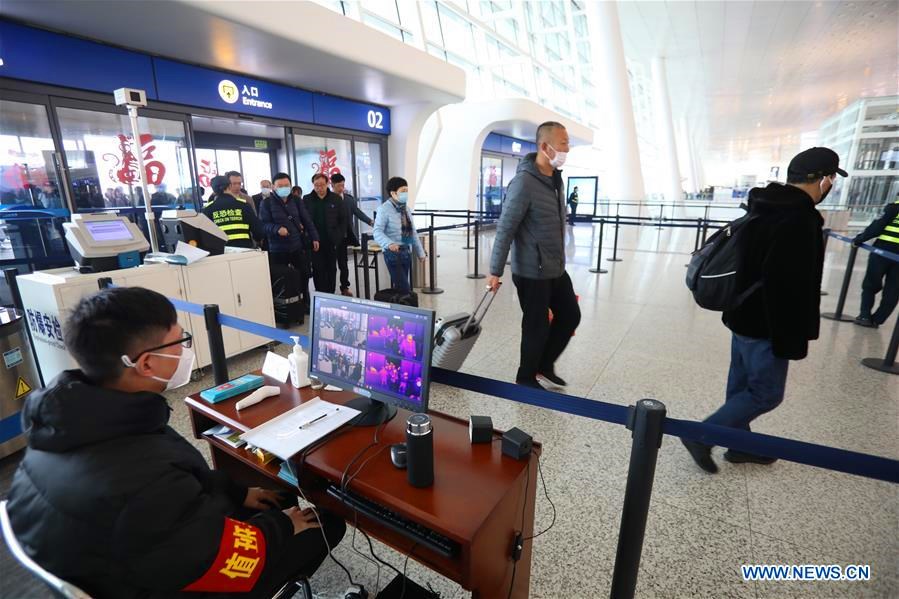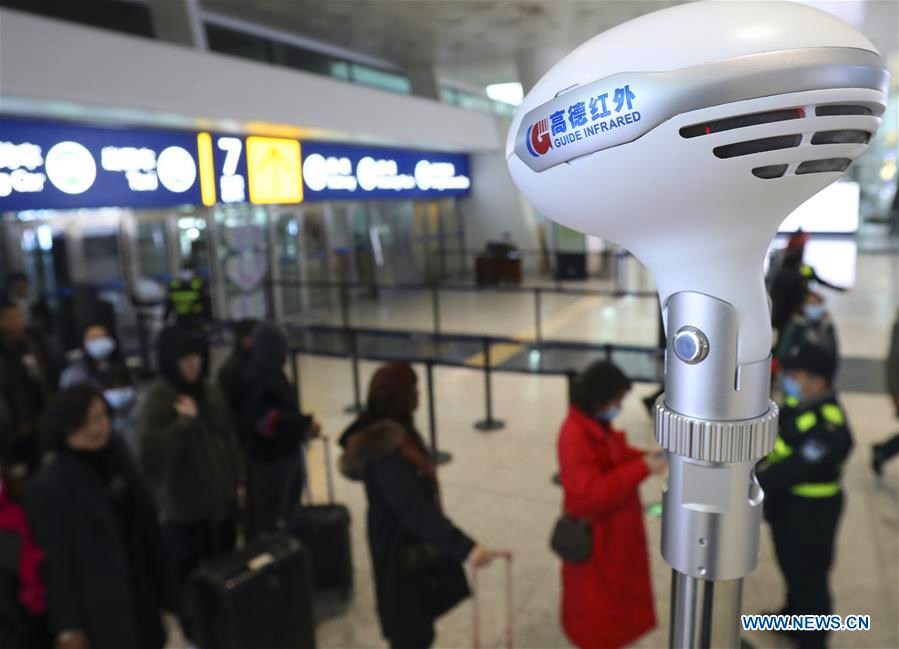Wuhan tightens control of outbound travelers to curb virus spread

Staff members take passengers' body temperature at Tianhe International Airport in Wuhan, capital of central China's Hubei Province, Jan. 21, 2020. The Chinese city Wuhan has taken a string of measures to tighten the control and monitoring of outbound travelers in an effort to curb the spread of new coronavirus-related pneumonia. Outbound tour groups have been banned, and local police are conducting spot checks on inbound and outbound private passenger vehicles for live poultry or wild animals, according to the municipal health commission. Thirty-five stationary infrared thermometers and over 300 hand-held ones have been used to screen passengers with fevers at various transport terminals in Wuhan, including the airport, railway stations, bus stations and passenger piers. Passengers with fevers will be registered, provided masks and brochures about pneumonia and advised to see doctors. Ticket cancellations and changing will be free of charge for them, according to the municipal government. As of 6 p.m. Monday, a total of 224 cases of pneumonia caused by the novel coronavirus had been reported in China. Of them, 217 had been confirmed, with 198 in Wuhan, 14 in Guangdong Province and five in Beijing. (Xinhua/Xiao Yijiu)
The Chinese city Wuhan has taken a string of measures to tighten the control and monitoring of outbound travelers in an effort to curb the spread of new coronavirus-related pneumonia.
Outbound tour groups have been banned, and local police are conducting spot checks on inbound and outbound private passenger vehicles for live poultry or wild animals, according to the municipal health commission.
Thirty-five stationary infrared thermometers and over 300 hand-held ones have been used to screen passengers with fevers at various transport terminals in Wuhan, including the airport, railway stations, bus stations and passenger piers.
Passengers with fevers will be registered, provided masks and brochures about pneumonia and advised to see doctors. Ticket cancellations and changing will be free of charge for them, according to the municipal government.
As of 6 p.m. Monday, a total of 224 cases of pneumonia caused by the novel coronavirus had been reported in China. Of them, 217 had been confirmed, with 198 in Wuhan, 14 in Guangdong Province and five in Beijing.
[page]

Staff members take passengers' body temperature at Tianhe International Airport in Wuhan, capital of central China's Hubei Province, Jan. 21, 2020. The Chinese city Wuhan has taken a string of measures to tighten the control and monitoring of outbound travelers in an effort to curb the spread of new coronavirus-related pneumonia. Outbound tour groups have been banned, and local police are conducting spot checks on inbound and outbound private passenger vehicles for live poultry or wild animals, according to the municipal health commission. Thirty-five stationary infrared thermometers and over 300 hand-held ones have been used to screen passengers with fevers at various transport terminals in Wuhan, including the airport, railway stations, bus stations and passenger piers. Passengers with fevers will be registered, provided masks and brochures about pneumonia and advised to see doctors. Ticket cancellations and changing will be free of charge for them, according to the municipal government. As of 6 p.m. Monday, a total of 224 cases of pneumonia caused by the novel coronavirus had been reported in China. Of them, 217 had been confirmed, with 198 in Wuhan, 14 in Guangdong Province and five in Beijing. (Xinhua/Xiao Yijiu)